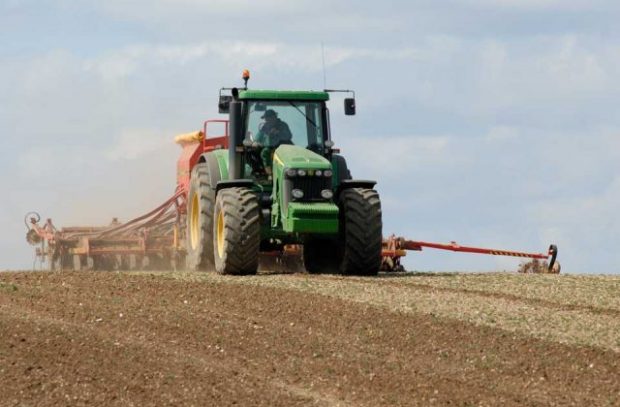
Farmers and land managers have the opportunity to share their views on the Environmental Land Management (ELM) scheme which is due to be fully rolled out by the end of 2024, replacing the schemes currently available under the EU’s Common Agricultural Policy (CAP).
Ahead of his attendance at the National Farmers’ Union’s (NFU) annual conference tomorrow (Wednesday 26 February), the Environment Secretary has shared new detail on the ELM scheme, including the new proposals for the scheme to include three ‘tiers’ of entry, enabling anyone from any farm or land type to participate at the right level.
Tier one would encourage farmers to adopt environmentally sustainable farming and forestry practices, while farmers, foresters and other land managers in tier two would focus on delivering locally-targeted environmental outcomes. The third tier would pay for larger-scale, transformational projects – such as restoring peatland.
Under the ELM scheme, farmers will be paid for work that enhances the environment, such as tree or hedge planting, river management to mitigate flooding, or creating or restoring habitats for wildlife. Farmers will therefore be at the forefront of reversing environmental declines and tackling climate change as they reshape the future of farming in the 21st century.
In his speech at the NFU Conference tomorrow, Environment Secretary George Eustice is expected to say:
We can all agree that we want British farming to be sustainable in the truest sense of the word, an industry which is profitable, competitive, and productive while feeding the nation and taking care of our landscapes too.
This week we’ve published more detail on our plans for the future and specifically on Environment Land Management, outlining how we hope to work with our farmers, and what to expect.
Now more than ever, efforts for the environment are absolutely critical, and no group has more power to reverse environmental decline than our farmers.
Farmers and land managers will have 10 weeks to have their say on the details of the new scheme, with government capturing their knowledge and experience. This will be supported with a number of regional events across the country for knowledge sharing between farmers, land managers and foresters and Defra officials designing the scheme.
The government has today also published a future farming policy update, as the Agriculture Bill goes through the Committee Stage in the House of Commons. This sets out how future policies will be designed to ensure increased productivity goes hand in hand with environmental initiatives, with further detail on issues including:
- Productivity: From 2021, new government grants will help farmers to invest in equipment and technology which will help them to increase their productivity and deliver environmental benefits.
- Research & Development: From 2022, Defra will support research and development projects to help our farming industry benefit from innovation, enabling farmers to produce food more efficiently and sustainably with lower emissions.
- Animal Health and Welfare: A new deal will be struck between government and farmers to promote the production of healthier, higher welfare animals, with publicly-funded schemes available for farmers to deliver animal health and welfare enhancements which go beyond regulatory requirements and which are valued by the public but not sufficiently provided for by the market.
3 comments
Comment by Guy Dibble posted on
It worries me that this document is headed with a picture of a tractor drilling in to cultivated soil when possibly the biggest single change farmers can make to help the environment and climate change is to ELIMINATE cultivation.
Zero till
Cover crop
Introduce livestock
Reduce chemical use, all can help us tie up carbon.
Comment by Mark Kinge posted on
Bravo! Involve schools in these new farming methods, teach our children how to provide for themselves, whilst providing for the future.
Comment by Simon Berry posted on
The environmental commitment shown by the government needs to reflect the diverse balance with nature and farmers in our countryside.
Small rural communities with diverse habitats and less accessible land for food production , need support more than ever to reflect the importance of people in the countryside.
Big is not always better, so any grant based schemes should way heavily in favour of the small more than the large farming networks.
Large efficient food producing farms are essential and will be profitable due to the economy of scale which is unavailable to smaller family farms.